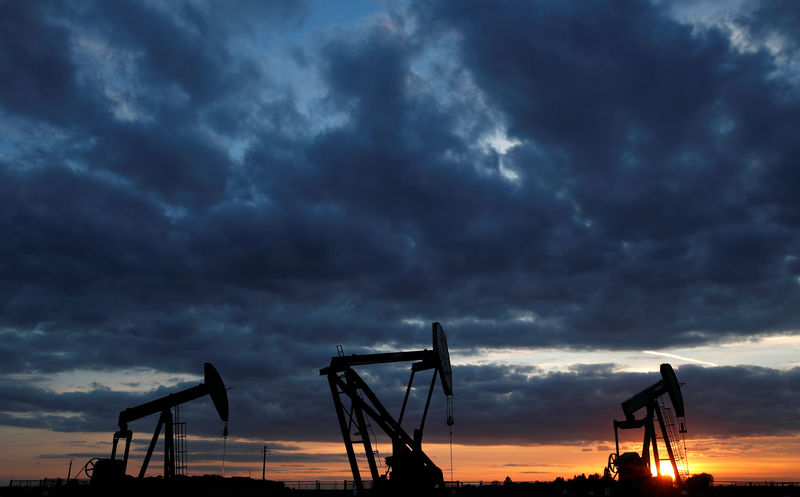(Bloomberg) -- Oil held losses in early Asian trading amid concern over near-term demand and dollar strength ahead of a closely watched OPEC+ meeting this week at which the group will decide on output policy.
Futures traded near $60 a barrel after dropping 1.6% Tuesday. An OPEC+ technical panel agreed to revise down the group’s oil-demand estimates for the year, delegates said. The dimmer outlook in the coming months comes as rising virus cases and renewed lockdowns look set to slow the global recovery.
The Bloomberg Dollar Spot Index rose to the highest since November on Tuesday, reducing the appeal of commodities priced in the currency. Industry data presented a mixed picture of U.S. stockpiles. Crude inventories rose by 3.91 million barrels last week but gasoline stocks fell by 6.01 million barrels, the American Petroleum Institute reported, according to people familiar.
Oil prices have pulled back in recent weeks as the Covid-19 situation deteriorates in parts of the world ahead of a widely anticipated demand rebound once enough people are vaccinated. Stricter lockdown rules in parts of Europe are showing up in traffic data and fuel use, while in the U.S., data from OPIS by IHS Markit show gasoline sales trailing pre-pandemic levels by 16%.
The price retreat also is a symptom of a rally that may have gotten ahead of itself, with global benchmark Brent futures surging above $71 a barrel earlier this month before the abrupt pullback. Crude at $70 destroys demand at a “faster pace,” and the market is still facing a lot of oil inventories, Total SE Chief Executive Officer Patrick Pouyanne said at an online conference.
All eyes are now on OPEC and its allies, who will consider whether to revive part of the 8 million barrels of daily output -- about 8% of global supply -- that they’re withholding. At their last gathering, the group had been widely expected to return some barrels to the market but, led by Saudi Arabia, opted not to do so given the sustained threat posed by the pandemic. The producer alliance is expected to maintain curbs to deplete global inventories further.
©2021 Bloomberg L.P.
